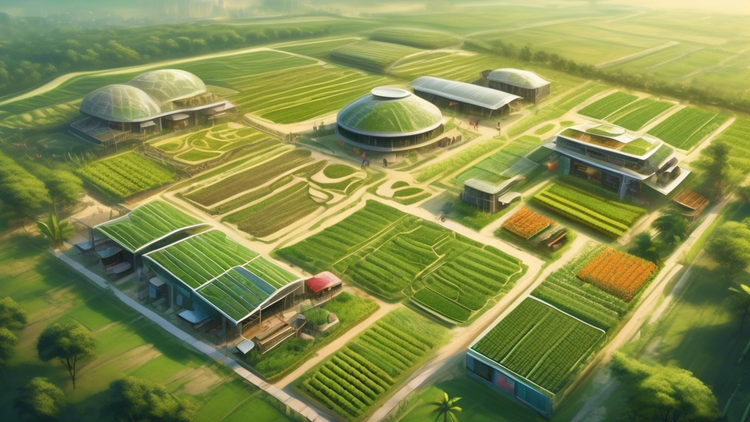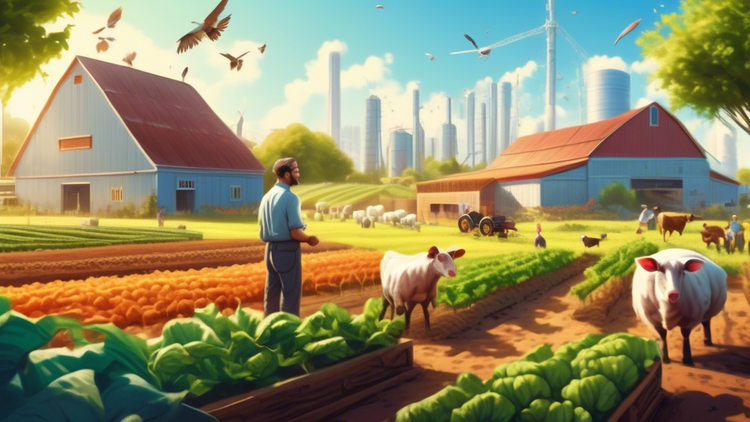Organic Farming: A Climate Change Solution

Organic Farming: A Climate Change Solution
In today’s era, where climate change poses a significant threat to our planet, it is imperative to seek sustainable solutions in every possible domain. Among these solutions, organic farming stands out as a beacon of hope for mitigating the impacts of climate change. This farming method emphasizes the use of natural substances and biological processes to enhance ecological balance and biodiversity, offering a host of environmental benefits.
The Link Between Organic Farming and Climate Change Mitigation
Scientists and environmentalists advocate for organic farming not only for its ability to produce healthier food but also for its potential to combat climate change. The connection between organic farming and climate change mitigation revolves around several key factors:
- Reduced Greenhouse Gas Emissions: Organic farming practices significantly lower greenhouse gas emissions by avoiding synthetic fertilizers and pesticides, which are energy-intensive to produce.
- Enhanced Soil Carbon Sequestration: Organic methods improve soil health, encouraging the absorption and storage of carbon dioxide from the atmosphere, a crucial process in reducing global warming.
- Less Energy Consumption: By relying on natural processes and manual labor, organic farming consumes less energy compared to conventional farming, which is heavily mechanized and dependent on fossil fuels.
- Biodiversity Protection: The diversity of crops grown in organic farms supports a wider range of wildlife, helping to maintain ecological balance and resilience against climate change.
Organic Farming's Role in Adapting to Climate Change
Beyond mitigating climate change, organic farming plays a vital role in helping agricultural systems adapt to its impacts. Organic farms tend to exhibit greater resilience to climate-related stresses such as drought, flooding, and soil erosion. This resilience is because organic farming practices encourage:
- Improved Water Management: Organic soils have better water retention capabilities, reducing the need for irrigation and conserving water resources.
- Higher Soil Quality: Through practices such as crop rotation and green manure, organic farming maintains soil fertility and structure, making farms more capable of withstanding extreme weather events.
- Natural Pest Management: By promoting biodiversity, organic farms reduce the risk of pest outbreaks that can be exacerbated by changing climate conditions.
Takeaways and Next Steps
It is clear that organic farming offers a promising pathway towards addressing climate change. By reducing emissions, sequestering carbon, saving energy, and building resilient agricultural systems, organic farming can significantly contribute to global sustainability efforts. However, transitioning to organic agriculture requires support at multiple levels – from policymakers promoting organic farming incentives to consumers choosing organic products.
For those interested in further exploring the benefits of organic farming or looking for ways to support sustainable agriculture, we encourage you to use the contact form for more information. Together, we can make a difference in the fight against climate change.
Something to Consider
The journey towards a more sustainable future is paved with choices that prioritize the health of our planet. Organic farming, while not the sole solution, is a vital piece of the puzzle in combating climate change. By supporting organic practices in our communities and making informed consumer choices, we contribute to a healthier, more sustainable world for generations to come.
#OrganicIsBest #CleanLiving #HealthyLifestyle





